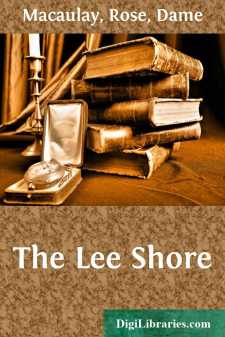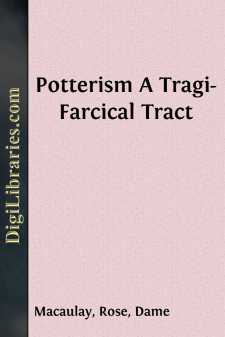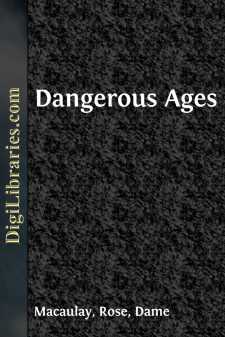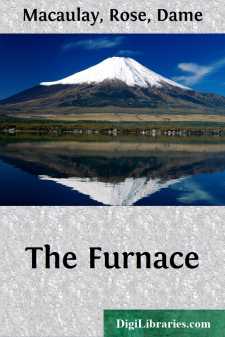Categories
- Antiques & Collectibles 13
- Architecture 36
- Art 48
- Bibles 22
- Biography & Autobiography 813
- Body, Mind & Spirit 142
- Business & Economics 28
- Children's Books 14
- Children's Fiction 11
- Computers 4
- Cooking 94
- Crafts & Hobbies 4
- Drama 346
- Education 46
- Family & Relationships 57
- Fiction 11829
- Games 19
- Gardening 17
- Health & Fitness 34
- History 1377
- House & Home 1
- Humor 147
- Juvenile Fiction 1873
- Juvenile Nonfiction 202
- Language Arts & Disciplines 88
- Law 16
- Literary Collections 686
- Literary Criticism 179
- Mathematics 13
- Medical 41
- Music 40
- Nature 179
- Non-Classifiable 1768
- Performing Arts 7
- Periodicals 1453
- Philosophy 64
- Photography 2
- Poetry 896
- Political Science 203
- Psychology 42
- Reference 154
- Religion 513
- Science 126
- Self-Help 84
- Social Science 81
- Sports & Recreation 34
- Study Aids 3
- Technology & Engineering 59
- Transportation 23
- Travel 463
- True Crime 29
The Lee Shore
by: Rose Macaulay
Description:
Excerpt
A HEREDITARY BEQUEST
During the first week of Peter Margerison's first term at school, Urquhart suddenly stepped, a radiant figure on the heroic scale, out of the kaleidoscopic maze of bemusing lights and colours that was Peter's vision of his new life.
Peter, seeing Urquhart in authority on the football field, asked, "Who is it?" and was told, "Urquhart, of course," with the implication "Who else could it be?"
"Oh," Peter said, and blushed. Then he was told, "Standing right in Urquhart's way like that! Urquhart doesn't want to be stared at by all the silly little kids in the lower-fourth." But Urquhart was, as a matter of fact, probably used to it.
So that was Urquhart. Peter Margerison hugged secretly his two pieces of knowledge; so secret they were, and so enormous, that he swelled visibly with them; there seemed some danger that they might even burst him. That great man was Urquhart. Urquhart was that great man. Put so, the two pieces of knowledge may seem to have a certain similarity; there was in effect a delicate discrimination between them. If not wholly distinct one from the other, they were anyhow two separate aspects of the same startling and rather magnificent fact.
Then there was another aspect: did Urquhart know that he, Margerison, was in fact Margerison? He showed no sign of such knowledge; but then it was naturally not part of his business to concern himself with silly little kids in the lower-fourth. Peter never expected it.
But a few days after that, Peter came into the lavatories and found Urquhart there, and Urquhart looked round and said, "I say, you—Margerison. Just cut down to the field and bring my cap. You'll find it by the far goal, Smithson's ground. You can bring it to the lavatories and hang it on my peg. Cut along quick, or you'll be late."
Peter cut along quick, and found the velvet tasselled thing and brought it and hung it up with the care due to a thing so precious as a fifteen cap. The school bell had clanged while he was down on the field, and he was late and had lines. That didn't matter. The thing that had emerged was, Urquhart knew he was Margerison.
After that, Urquhart did not have occasion to honour Margerison with his notice for some weeks. It was, of course, a disaster of Peter's that brought them into personal relations. Throughout his life, Peter's relations were apt to be based on some misfortune or other; he always had such bad luck. Vainly on Litany Sundays he put up his petition to be delivered "from lightning and tempest, from plague, pestilence, and famine, from battle and murder, and from sudden death." Disasters seemed to crowd the roads on which he walked; so frequent were they and so tragic that life could scarcely be lived in sober earnest; it was, for Peter the comedian, a tragi-comic farce. Circumstances provided the tragedy, and temperament the farce.
Anyhow, one day Peter tumbled on to the point of his right shoulder and lay on his face, his arm crooked curiously at his side, remarking that he didn't think he was hurt, only his arm felt funny and he didn't think he would move it just yet....






